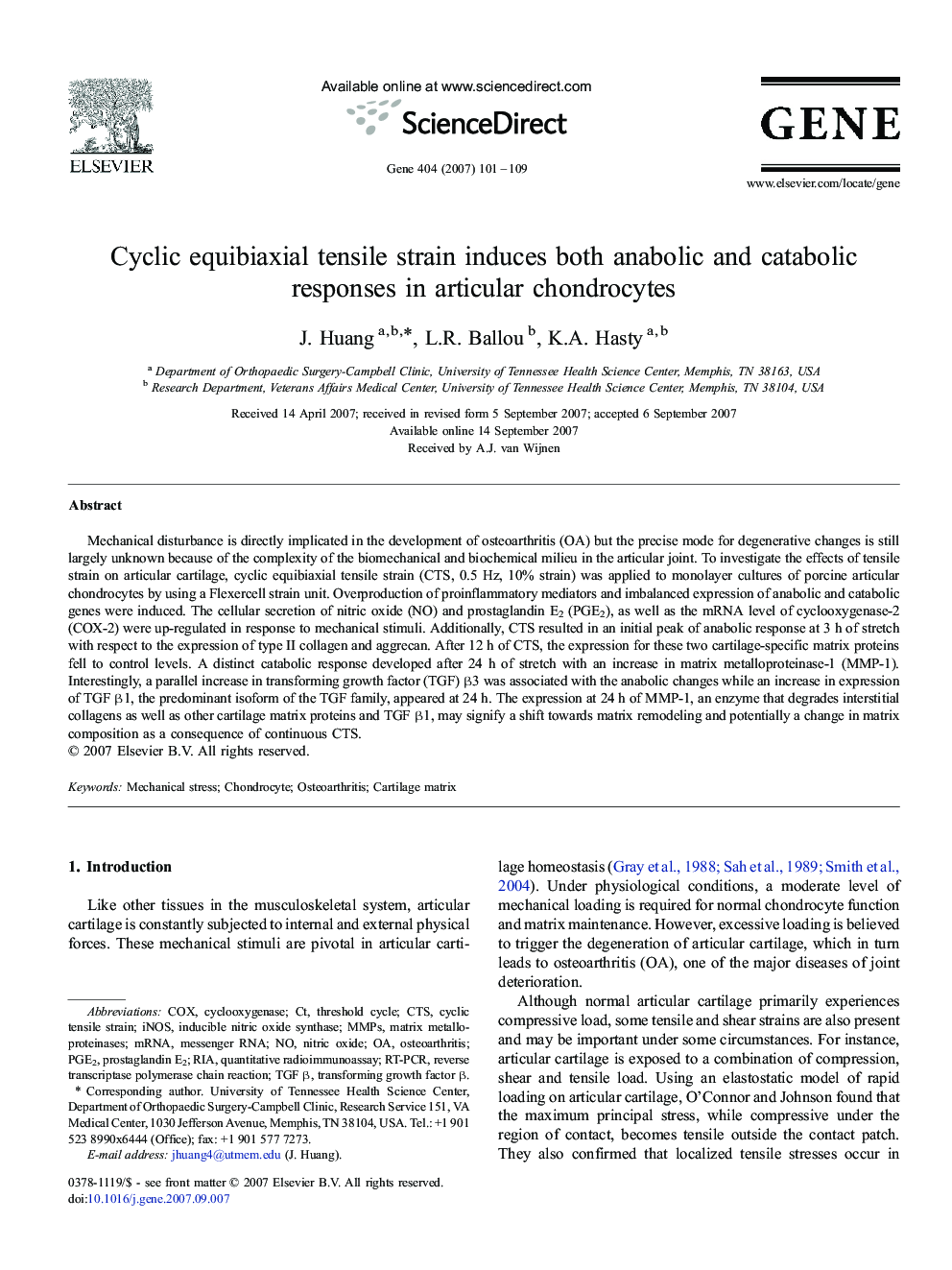| Article ID | Journal | Published Year | Pages | File Type |
|---|---|---|---|---|
| 2819535 | Gene | 2007 | 9 Pages |
Mechanical disturbance is directly implicated in the development of osteoarthritis (OA) but the precise mode for degenerative changes is still largely unknown because of the complexity of the biomechanical and biochemical milieu in the articular joint. To investigate the effects of tensile strain on articular cartilage, cyclic equibiaxial tensile strain (CTS, 0.5 Hz, 10% strain) was applied to monolayer cultures of porcine articular chondrocytes by using a Flexercell strain unit. Overproduction of proinflammatory mediators and imbalanced expression of anabolic and catabolic genes were induced. The cellular secretion of nitric oxide (NO) and prostaglandin E2 (PGE2), as well as the mRNA level of cyclooxygenase-2 (COX-2) were up-regulated in response to mechanical stimuli. Additionally, CTS resulted in an initial peak of anabolic response at 3 h of stretch with respect to the expression of type II collagen and aggrecan. After 12 h of CTS, the expression for these two cartilage-specific matrix proteins fell to control levels. A distinct catabolic response developed after 24 h of stretch with an increase in matrix metalloproteinase-1 (MMP-1). Interestingly, a parallel increase in transforming growth factor (TGF) β3 was associated with the anabolic changes while an increase in expression of TGF β1, the predominant isoform of the TGF family, appeared at 24 h. The expression at 24 h of MMP-1, an enzyme that degrades interstitial collagens as well as other cartilage matrix proteins and TGF β1, may signify a shift towards matrix remodeling and potentially a change in matrix composition as a consequence of continuous CTS.
